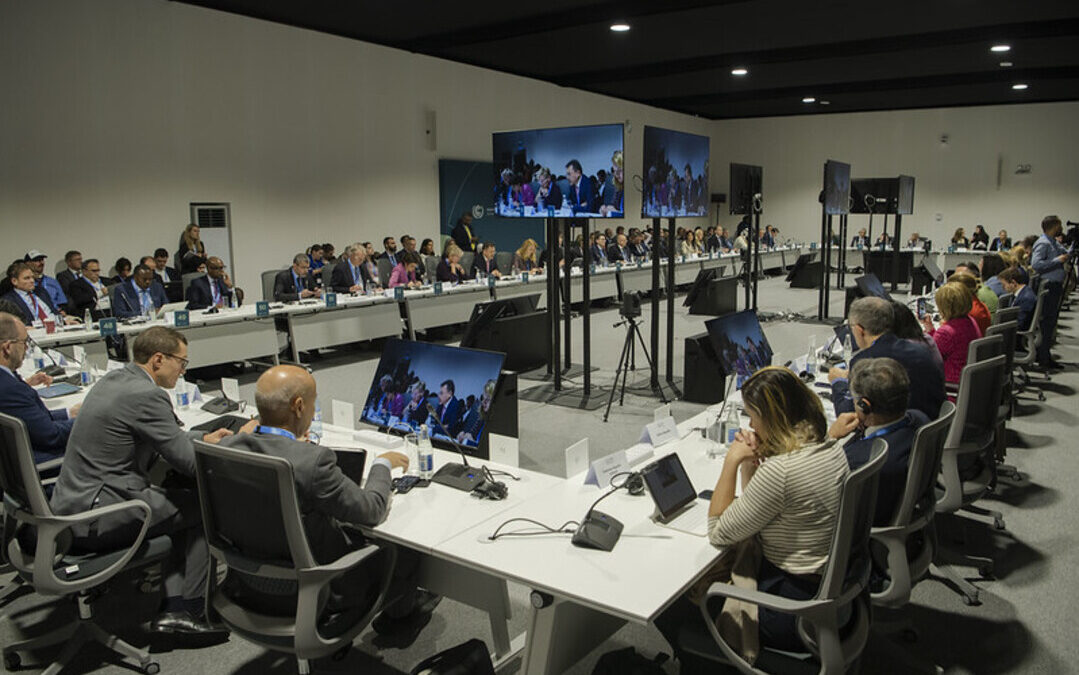India Criticizes Developed Nations’ Climate Finance Stance at COP29
India accuses developed nations of stalling climate finance and shifting mitigation burdens at pivotal CoP29 negotiations.
As negotiations at the CoP29 summit in Baku intensified, India expressed deep dissatisfaction with the lack of meaningful engagement from developed nations on critical climate finance and mitigation issues.
Speaking at the closing plenary of the subsidiary bodies on Nov. 16, India’s delegation criticized developed countries for stalling progress on the Sharm el-Sheikh Mitigation Ambition and Implementation Work Programme, a pivotal agenda item for the Global South.
Subsidiary bodies are key entities that support the conference of the parties by providing technical and policy advice on a range of climate-related issues.
In a strongly worded statement, India accused wealthier nations of reneging on prior commitments while shifting the burden of climate action to developing countries.
“We have seen no progress in matters that are critical for developing countries,” India’s delegation stated. “Our part of the world is facing some of the worst impacts of climate change, with far lower capacity to recover or adapt to the changes for which we are not responsible.”
A Call for Accountability
India, aligning with the Like-Minded Developing Countries, the Arab Group, and the African Group of Negotiators, underscored the urgent need to respect the mandate of the MWP as agreed at CoP27.
The work program, India reiterated, was designed to foster voluntary and non-prescriptive discussions on mitigation without imposing new targets or infringing on national sovereignty.
“We notice a tendency to ignore the decisions taken in the past,” the delegation remarked, referencing attempts by developed countries to expand the scope of the MWP to include elements from the Global Stocktake at CoP28.
Such efforts, India argued, contradict the bottom-up principles enshrined in the Paris Agreement and threaten to undermine trust among nations.
Climate Finance: A Growing Divide
India’s frustration also stemmed from the lack of progress on climate finance, a central issue at the Finance-focused CoP29.
Developing nations, including India, have long called for predictable and adequate financial support to implement climate actions. However, India accused developed countries of “shifting goalposts” and failing to deliver on their commitments.
“If there are no means of implementation, there can be no climate action,” India’s lead negotiator declared. “We are being asked to increase mitigation ambition by those who have shown no such ambition, either in their own mitigation efforts or in providing the necessary support.”
India also pointed to wealthier nations’ disproportionate consumption of the global carbon budget, leaving developing countries with fewer resources to balance climate action with pressing developmental needs.
A Turning Point for Global Cooperation?
The CoP29 summit, intended to address critical gaps in climate finance and ambition, has exposed a widening chasm between developed and developing nations.
India’s remarks highlight growing frustration among the Global South over perceived inequities in the international climate framework.
As negotiations continue, the outcome of the MWP discussions will likely determine whether CoP29 can pave the way for more equitable climate action or deepen existing divides.
Also Read:
Nirmal Menon
Related posts

Subscribe
Error: Contact form not found.


